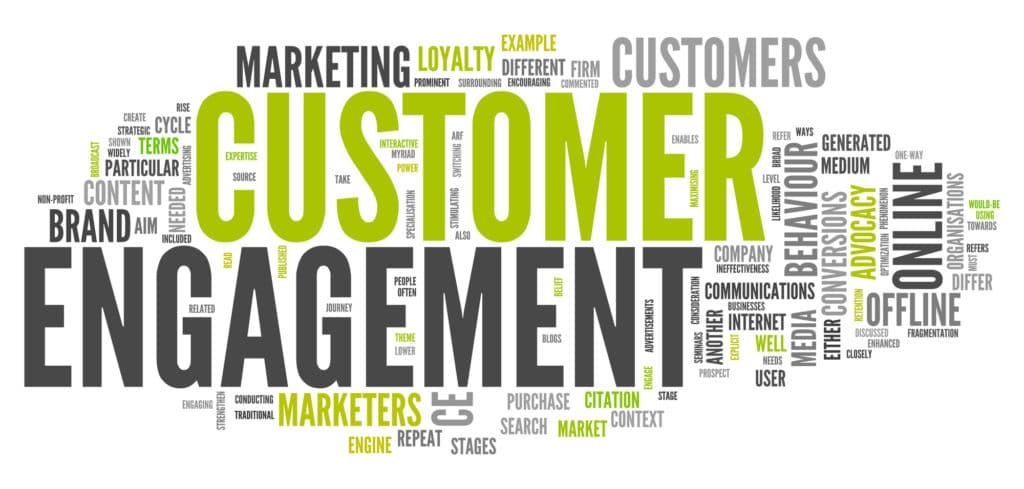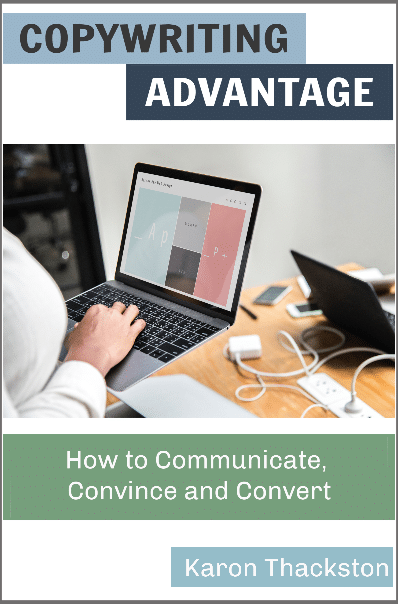 I did a survey of the people on my list a little while back. You know, the kind that asks for opinions and ideas so I can make sure I’m providing the types of information my community wants most. While there were several great topics that came up, one thing I saw repeatedly was a concern about finding just the right marketing words in order to connect with and persuade audiences.
I did a survey of the people on my list a little while back. You know, the kind that asks for opinions and ideas so I can make sure I’m providing the types of information my community wants most. While there were several great topics that came up, one thing I saw repeatedly was a concern about finding just the right marketing words in order to connect with and persuade audiences.
“I understand what to do when it comes to writing copy, but I don’t know how to find the words that work best.” The answer is simple. The only way to know is to understand your target audience.
Here are a couple of articles I’ve written about customer profiles (avatars, personas or whatever you choose to call them). They’ll get you started. For now, let’s assume you have a good understanding of who your target customers are, what they want/need and the ways they interact with you and your brand, products and/or services.
- How To Use Customer Profiles To Improve Your Online Marketing
- How To Develop Your Unique Selling Proposition Using Toothpaste
Clever Trick #1: Let others give you the words
Conduct Surveys: As you read all the information you’ve compiled about your customers, take notes and begin to create a list of marketing words they use repeatedly. For instance, in the survey results for my list, I saw these types of phrases regularly in the responses:
- I need help understanding keywords
- What should I include in my copy?
- How do I know who my target audience is?
- What are the right character counts for my product listing?
- Where are keywords supposed to go?
But, one of the most prominent statements I saw was:
- It’s hard to find the right marketing words that sell.
Because numerous people who took the survey all used the same or similar language, there is a good chance that these types of words will resonate well with the majority of my audience.
Look at Reviews: This is a quick and easy way to enlighten yourself about how your customers think and what they do/don’t value about particular products or services. Just as I did when evaluating my survey results, you will want to read through your own reviews and those of your competitors. As you do, develop a list of language that shows up repeatedly.
If you’re writing about a specific product (a carry-on travel bag, for instance) you’ll also be able to pick up laser-focused thoughts about the likes/dislikes customers have with regard to the bag.
Some examples include:
- Cute
- Travel
- Airport
- Airplane
- Gym bag/workout bag
- Lightweight
- Perfect for road trips
- Perfect for planes
- Overnight bag
From these few terms, you can see that the bag is being used by people who travel, go to the gym, take overnight trips and who appreciate that the bag is cute and lightweight.
By including these exact marketing words and phrases in your copy, you have a better chance of connecting with your customers because you are using their exact language.
Online Shopping Networks
QVC, Home Shopping Network and others offer detailed interaction with products. Because they demo the products live on TV, and speak with customers about their experiences with the items, you get an in-depth idea of what the product creators, hosts and customers think.
Often, you’ll find videos on these types of websites that you can watch. You’ll apply the same process as before, making notes of common themes customers or hosts bring up about the products.
Clever Trick #2: Expand on your customers’ opinion of his/herself
How does your customer describe him/herself? (This goes back to data you’ve collected when building your customer personas.) If, for instance, your customers are self-proclaimed:
- Divas
- Social media fanatics
- Millennials
- High income earners
- Self magazine readers
- Online entrepreneurs
You’ll want to use words that appeal to those people. That means working in terms such as:
(For divas)
Trendsetter
Fashionista
Fashion leader
Jealous
(For social media fanatics)
Pinterest-worthy
Instagram-worthy
Will go viral
Your followers will love
These 5 Words Can Make or Break Your Marketing Results
Ready for more clicks, increased engagement & better results from all your marketing? It's time to beef up your short copy. Discover 5 words that add power & persuasion to headlines, titles, subject lines, bullets, calls-to-action and more.

I understand that I will also receive weekly articles & videos plus periodic discounts, product notices & more. I can unsubscribe at any time.
(For high income earners)
You’ve arrived
You’ve made it
Because you can
Because you deserve it
(For Self magazine readers)
Fit
In shape
Healthy
Workout
(For online business owners)
Busy
Determined
Passionate
Visionary
Risk-taker
How do you work these terms into your copy? Let’s say you’re writing about a zoom lens for an iPhone camera. You might say:
Are you a fashionista showing off Pinterest-worthy shots of your latest finds from Neiman’s, or the newest moves from your recent workout? Your followers will appreciate the clarity and detail this camera gives you. After all, you’re worth it!
Or, if you’re writing copy for your nail salon’s website, you might take this approach:
Are you a diva who wants to show off your Instagram-worthy nails? Your followers will be jealous when you set new trends with the latest manicure designs. You’ll get steady compliments because your fab nails easily go from work to workout without a chip or break. Do this for yourself… you deserve it!
For online business owner on your coaching website, you might say:
Yes, you’re busy and passionate about what you do, but you’re also determined to get to a higher income range. Can your visionary spirit guide you through all alone? If your inner risk-taker is telling you it’s time to partner with a coach who can help you break through to the next revenue level, call me.
Clever Trick #3: Get a Copywriter’s Thesaurus
Did you know there was such a thing as a copywriter’s thesaurus? I have several types on my bookshelf and I refer to them regularly. These must-have resources will give you a dependable source of uncommon (read: not boring and repetitive) words to use in all sorts of copy.
My favorites are below, but you can probably find others. If you do, tell me about them in the comments section below.
- Words That Sell by Richard Bayan
- More Words That Sell by Richard Bayan
- The Big Book of Words That Sell: 1200 Words and Phrases That Every Salesperson and Marketer Should Know and Use
- Good Words Fast: The Unique Thesaurus for Business Writers, Journalists, Copywriters and More
BONUS Clever Trick: Read a Lot of Advertising Copy
One of the best ways to get into a copywriter’s mindset (whether you are a professional writer or just creating your own copy) is to read every piece of advertising you can. Use Evernote, Excel or Word/Google Docs to create lists of marketing words and phrases that would appeal to your audience.
Then, when you need to write a piece of copy, you have a go-to source that you can quickly scan and pluck interesting words from.
NOTE: NEVER plagiarize or steal other people’s copy. Do NOT swipe entire sections of someone else’s copy and use it as your own. This is one of my biggest pet peeves. If you’re guilty of copyright infringement or plagiarism you could face heavy fines or have your website removed from your web hosting company.
In order to persuade your audience, you have to know who they are and what they want. Once you do, and you find select marketing words and phrases to have on hand, you’ll make quick work of creating copy that converts.
 The unsung hero of marketing is copywriting. Without it, all your other marketing efforts will suffer. And there’s good news! Learning to write copy isn’t as hard as you think and doesn’t require a ton of spammy language… IF you choose the right copywriting course.
The unsung hero of marketing is copywriting. Without it, all your other marketing efforts will suffer. And there’s good news! Learning to write copy isn’t as hard as you think and doesn’t require a ton of spammy language… IF you choose the right copywriting course.
Get access today to Copywriting Advantage: How to Communicate, Convince & Convert and see how quickly you can flip your under-performing pages into profit mode!
Save 25% now with code COPYADV for a limited time.
Have questions about marketing words? Talk to me below!



Wow, Karon! These are some great tips! I definitely wouldn’t have thought of watching QVC and other shopping network shows, but that totally makes sense now that you’ve said it. Thank you! Your posts are amazingly helpful and insightful!
I’m glad you like them. Thanks for your kind words.